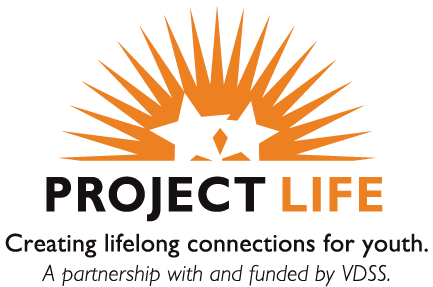HEALTH AND NUTRITION
When it comes to your body, better choices can help you develop a stronger sense of well-being and confidence.
Taking a look at the things that go into a your body — food, drink, medication — and into your mind — what you read or watch and who you pay attention to — will help you sharpen your understanding of yourself as an individual who can affectyour own future.
Healthcare Eligibility
New legislation has been passed regarding medical coverage for young adults formerly in foster care that now means youth in foster care under the age of 18 aren’t the only individuals eligible for medical coverage. If you were in foster care and received Medicaid in Virginia at the age of 18 (or older), and you are currently under the age of 26 (even if you “aged out” at 18 and had a lapse in medical coverage), you may be eligible for Medicaid or other medical coverage!
Any young adults who were in foster care at the time of their 18th birthday can apply online at www.commonhelp.virginia.gov or by calling the Cover Virginia Call Center at 1-855-242-8282.
Healthy Mind: Youth Body Image
At the same time that youth face the challenge of aging out of foster care, they are also undergoing significant body changes. It is important to help young people realize their uniqueness and understand that everyone develops differently and at different times so comparisons with others is a losing game. While they do not have control over the natural changes their bodies are undergoing, healthy eating and exercise can affect how their bodies develop. Healthy habits developed early can help young people perform better no matter what path they choose.
Youth were probably exposed to exercise in school but, unless they were on a school team, physical education class may not have inspired them to continue exercising. By making young people aware of the wealth of ex- ercise options they have, you can help them find one that they are genuinely excited about and will stick with. By exploring how their body feels doing different activities such as yoga, martial arts or other activities that involve focus on how the body stretches and moves, they may discover a lifelong exercise option that will help them stay healthy.
Use the Exercise Choices tool to explore with youth what their preferences are, such as exercising with a friend or alone, playing for fun or competing on a team. Introduction to Nutrients is a good starting point for discussing food choices and how they affect us.
Healthy Mind: Emotional Awareness
Teens often struggle with identity and self-image. On top of that, hormonal changes may cause them to be irritable for no reason. They may need help coping with these challenges. First, help them recognize that they are going through natural changes. Help them figure out what emotions they are experiencing and healthy ways to express them. A good exercise is to name emotions. For example, you can ask the youth what is the difference between feeling angry and feeling irritated, as they experience it. How can each be expressed in a healthy way?
The next stage is to consciously decide what mood they would like to be in on a particular occasion and figure out how they might achieve that mood. They need to know that taking action to change their mood, such as changing body posture or changing their environment — even for a few minutes — can make a world of difference and give them the sense of being in control. Help them develop tools to change their mindset to one that is more positive and more likely to help them cope with the challenges they face.
More Resources: NAMI Virginia Helpline – Call: 1-888-486-8264 or email info@namivirginia.org; Suicide Prevention resources; Resources for LGBTQ+
Healthcare Eligibility
DID YOU KNOW? More than 46 percent of teens admitted to having sex. -U.S. Centers for Disease Control and Prevention, 2013
It takes time for youth to understand who they are and who they’re becoming. Part of that involves having a greater understanding of their own sexual feelings and who is attractive to them. If the youth you are working with are sexually active, talk to them about protecting themselves and their partner by using contraceptives as well as the advantages and limitations of different kinds of contraception.
In Virginia, minors (those under the age of 18) are not legally required to notify or get permission from their parents to obtain birth control. Many forms of birth control are available. Some require a prescription from a doctor; others don’t. Encourage them to talk to a medical professional who can help them find the method that is right for them.
It is also important that youth feel comfortable talking about risk prevention and become knowledgeable about sexually transmitted diseases (STDs).
More Resources: Planned Parenthood





